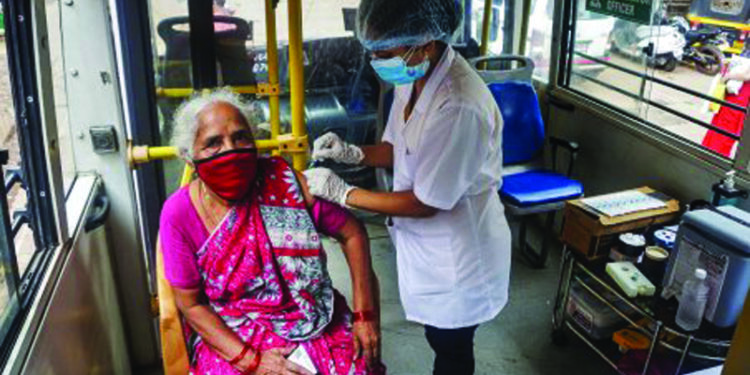NE NEWS SERVICE
CHENNAI, AUG 8
Vaccine hesitancy was prevalent among 27.6 per cent of people aged above 60 years while the same was present in 16.9 per cent between the age group of 18 and 44 years, a study by the Tamil Nadu government revealed on Sunday.
As many as 18.2 per cent of people between the age group of 45 and 59 years were also hesitant to receive the jabs, the survey conducted by the Directorate of Public Health and Preventive Medicine, in July across Tamil Nadu, said.
According to the study, vaccine hesitancy was observed in 19.7 per cent men and 18.4 per cent women, while 17.5 per cent people living in urban and 20.3 per cent in rural areas expressed “unwillingness” to get inoculated. Some of the reasons for the vaccine hesitancy was fear of injections (48.4 per cent), fear of complications after receiving the jabs (57.6 per cent), long queue to get the jabs (22.5 per cent), no person to accompany (21 per cent).
About 59.9 per cent people faced difficulty in collecting details on where to receive the vaccines, while 24.5 per cent doubted the efficacy of the vaccines.
The sample size was 1,596 people between 18-45 years, 771 between 45 and 59 years and 488 above the age of 60 years.
As many as 1,401 men and 1,453 women were covered in the survey conducted in the state. Vaccine acceptance was prevalent among 83.1 per cent people between 18-44 years, while it was 81.8 per cent between 45-59 years and 72.4 per cent above the age of 60 years.
Nearly 82.5 per cent of those residing in urban areas and 79.7 per cent in rural areas were willing to get vaccinated, while 82.8 per cent people said the reason to get vaccinated was to prevent disease while 23.7 people said it prevents spread to others.
Following the results from the study, the department of public health said it would focus on awareness activities to address the misconceptions. “People above 60 years will be given special attention and strategies will be created to counter the barriers and empower everyone to get vaccinated with confidence”, the study said.
The survey was done across Tamil Nadu in July by the department with a survey team constituted and led by respective deputy director of health services.
“In Chennai, the study was done by community medicine postgraduate students of Madras Medical College with support from Greater Chennai Corporation,” it said.
As many as 95 clusters were chosen randomly in the state and 30 random houses were selected in each of the cluster. The houses were visited physically, and one family member was chosen by a random method, the survey said.









